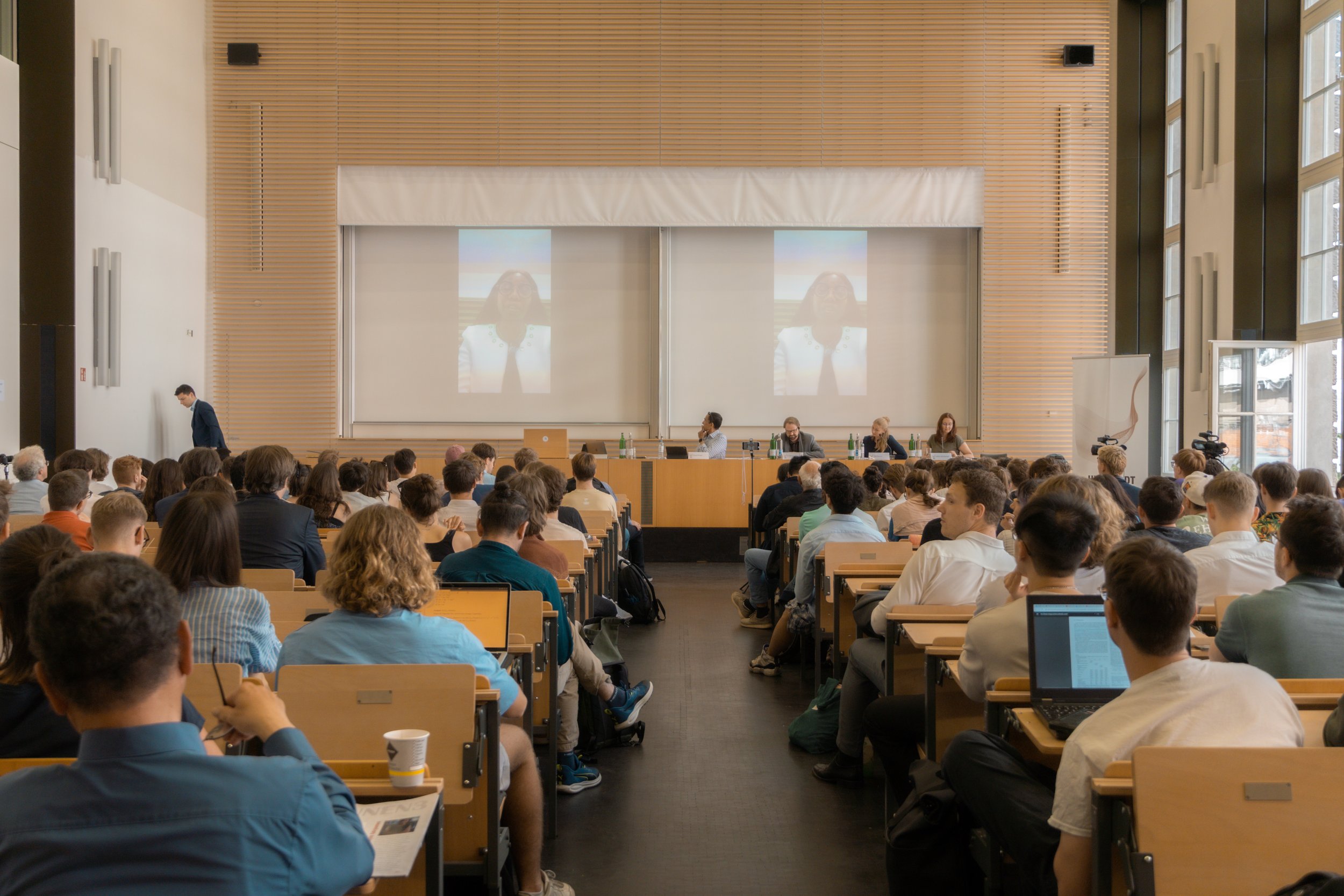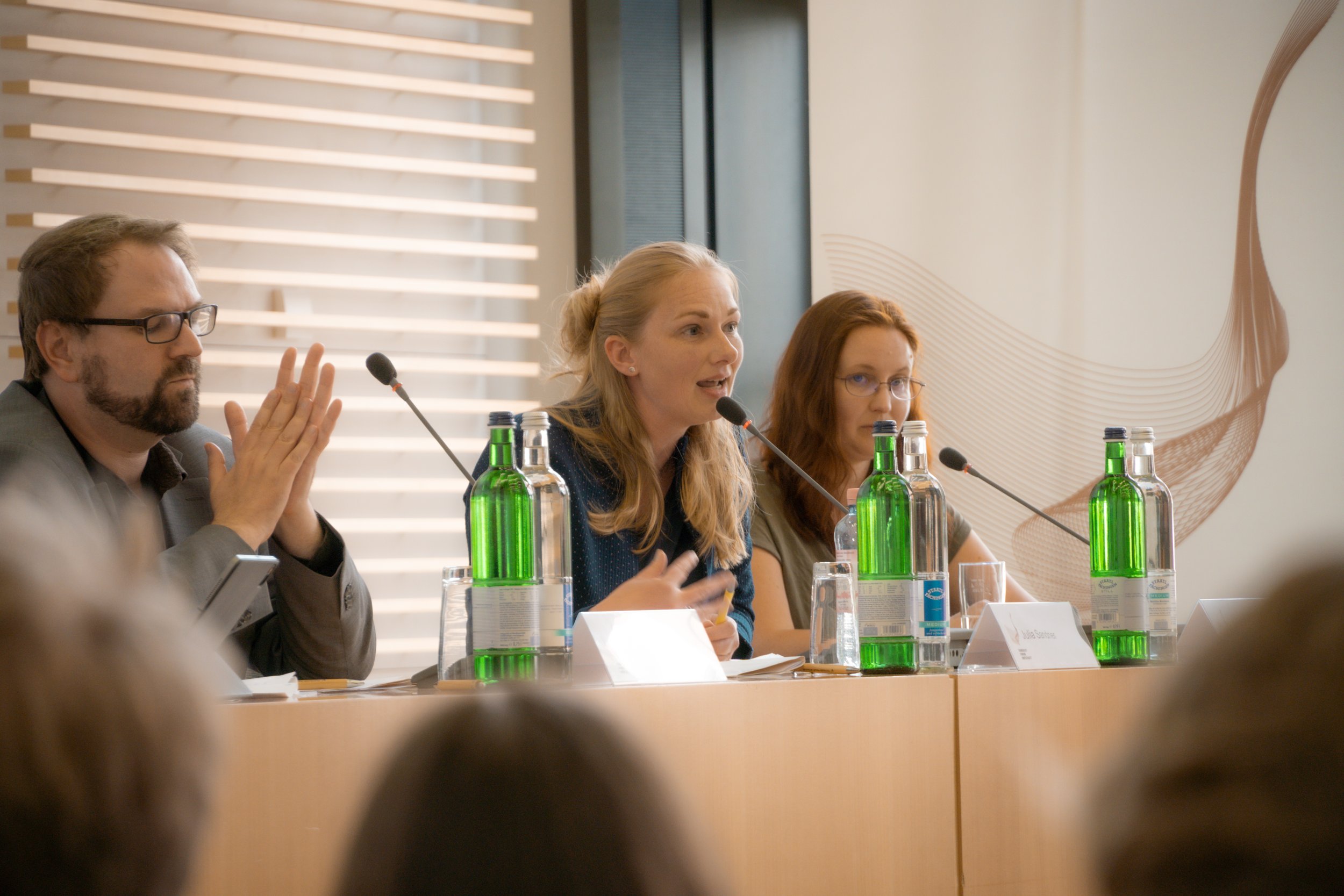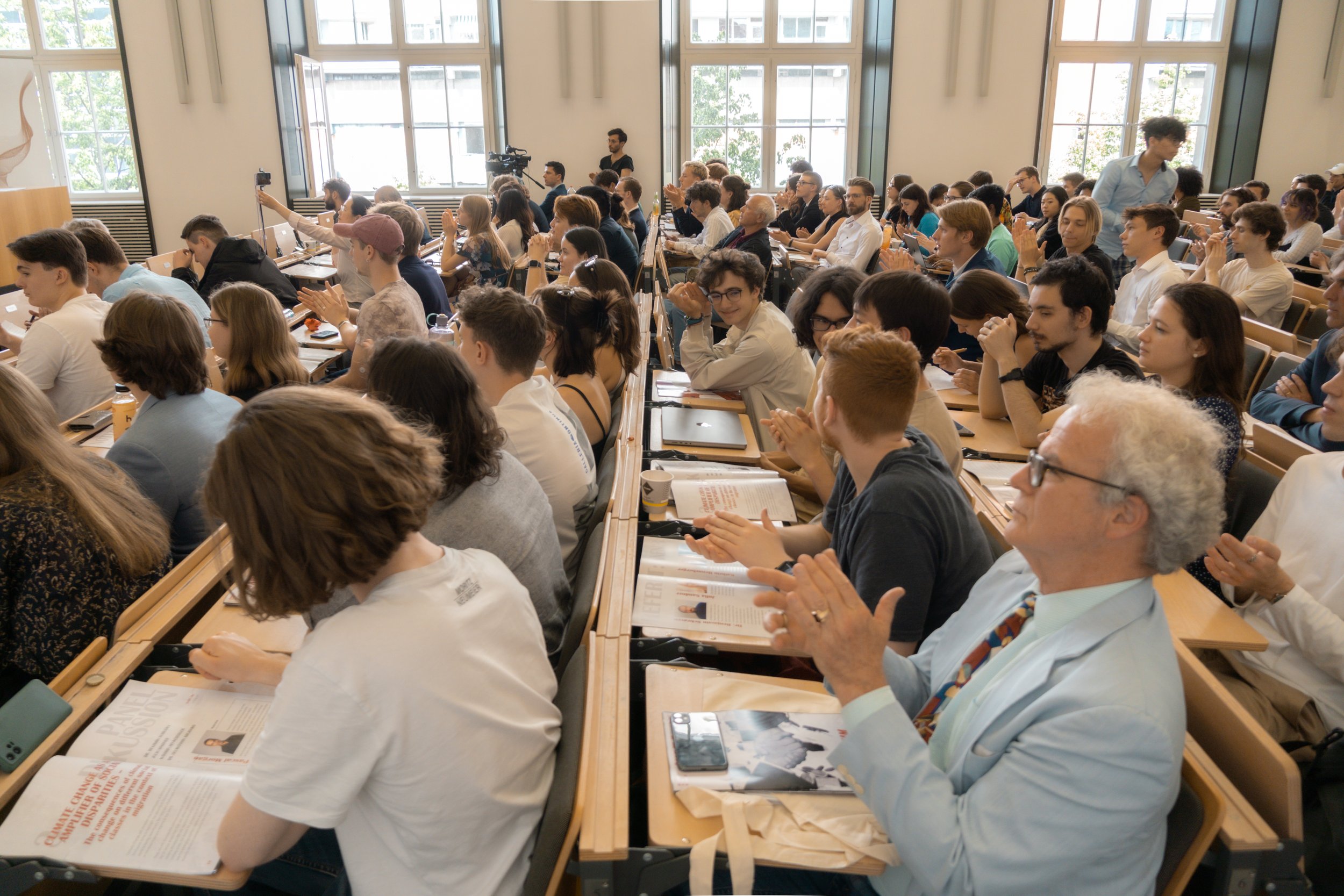Climate change as an amplifier of social disparities - The consequences of climate change on different social classes in the context of migration
In the panel "Climate change as an amplifier of social disparities - The consequences of climate change on different social classes in the context of migration", the experts from diverse fields, Kathrin Henneberger, Benjamin Schraven and Julia Sandner congregated to exchange insights and foster an in-depth discussion on the topic. The discussion was very well led by moderator Pascal Morgan.
The event started with an important video message from Dr. Oluwatoyin Adejonwo, who is a Senior Lecturer at the Department of Public Law, Faculty of Law, University of Lagos. She was able to share impressions and experiences directly from Nigeria. She described how climate change manifests itself there and what consequences it has for the people.
In general, the event provided valuable insights and discussed various aspects related to climate change and climate related migration.
The panelists delved into the concept of climate refugees and climate migration, emphasizing that these terms encompass the movement of people resulting from climate-related factors. While climate change plays a significant role, the panelists recognized that various other factors contribute to people's displacement, emphasizing the need for a nuanced understanding of the issue.
The panel highlighted the ongoing climate crisis, which is already manifesting in different regions across the globe. Urgency was stressed, underscoring the importance of immediate action. To support nations grappling with the impact of climate change, the panel proposed the establishment of dedicated climate funds, providing financial assistance to affected countries and facilitating the implementation of adaptation and mitigation measures.
Democracy and good governance emerged as pivotal factors in effectively addressing the climate crisis. The panelists emphasized the need for democratic principles as a fundamental basis for climate action. Inclusive decision-making processes were deemed crucial, ensuring that the voices of those most affected by climate change are amplified and considered in policy development.
The panel discussion also delved into the intricate connections between climate change, conflict, and migration. The interdependencies among these factors were highlighted, underscoring the necessity of adopting a comprehensive approach. Engaging with affected communities and tailoring solutions to their specific contexts were emphasized, promoting ownership and effectiveness of climate initiatives.
Implementing climate-related projects and initiatives presented challenges discussed by the panel. They called for a reevaluation of traditional approaches to development aid, emphasizing the importance of community empowerment. The need to involve local communities in decision-making processes and enable their active participation was stressed, ensuring that projects align with their needs and aspirations.
Financial resources were identified as a critical aspect of addressing the climate crisis. The panelists emphasized the significance of adequate funding for effective climate action. While official aid was recognized as one avenue, the panel underscored the importance of innovative financing mechanisms and investments to drive substantial progress.
Overall the discussion was engaging and put light on an aspect of climate change which often is forgotten but with which we will be confronted more and more in the following years.
by Arianna Scala




